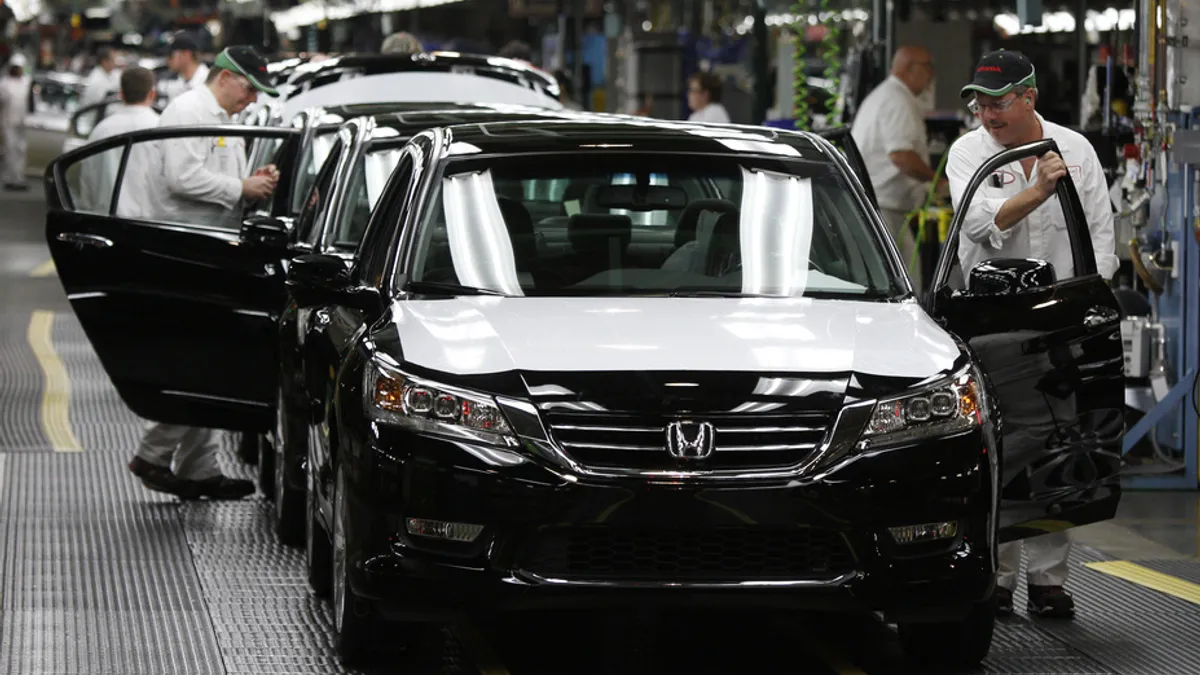Dive Brief:
-
Labor shortages are emerging throughout the economy despite low employment levels and rising wages, increasing the risk of accelerating inflation, former Treasury Secretary Lawrence Summers said at an online gathering held by the Federal Reserve Bank of Atlanta.
-
Persistent fears of the coronavirus and supplemental unemployment assistance have discouraged many idle workers from rejoining the labor force, compelling some companies to substantially increase wages, he said.
-
“Labor shortage is a pervasive phenomenon and the failure to recognize that, and the failure to begin an adjustment to that reality, puts at risk the kinds of mistakes we have not seen made in the United States for a long time,” Summers said, flagging the risk that accelerating inflation may destabilize financial markets.
Dive Insight:
The number of job openings in the U.S. hit 8.1 million at the end of March, the highest level since the government began collecting the data in 2000, according to the Bureau of Labor Statistics.
Aiming to attract workers, McDonald’s, Amazon, Chipotle and several other large employers have announced wage increases in recent weeks, along with perks including tuition assistance and signing bonuses. Average hourly earnings for private-sector employees rose in April by 21 cents to $30.17.
“The labor market is tight everywhere I look,” Summers said, noting high demand from accelerating growth coupled with some workers' reluctance to seek employment, has created a supply-demand imbalance.
“There’s been an adverse supply shock to labor at the same time that there’s been a substantial demand shock,” he said. “Everywhere I look there are vacancies, people eager to fill the vacancies and unable to fill the vacancies without very rapid wage increases.”
Inflation is rising. Consumer prices in April surged 4.2% from a year earlier in the highest increase during any 12-month period since 2008.
Since the start of the pandemic-induced downturn early last year, the Federal Reserve has downplayed the threat of inflation while seeking to revive economic growth with record stimulus. It has pushed down the benchmark interest rate to 0.25% and purchased $120 billion in bonds every month.
Fed Chairman Jerome Powell said after a meeting of policymakers last month that the central bank will press on with record stimulus and reiterated his expectation that an increase in inflation would prove transitory. Minutes from the April 27-28 meeting reiterated the Fed’s view that an inflationary uptick would pass.
“Despite the expected short-run fluctuations in measured inflation, many participants commented that various measures of longer-term inflation expectations remained well anchored at levels broadly consistent with achieving the committee’s longer-run goals,” according to the minutes released today.
Most policymakers predicted in March that the central bank will keep the benchmark interest rate at the current level through 2023.
“We have underestimated the risks very substantially, both to financial stability and as well as to conventional inflation, of protracted low interest rates,” Summers said. “The serenity being projected with respect to inflation — the policy projections suggesting that rates may not be raised for three years, close to three years — are creating a dangerous complacency.”
There is a "strong need to adjust” monetary policy, he added. “Those adjustments will come as a surprise and jolt to market participants in ways that will do real damage to financial stability and may do real damage to the economy.”














